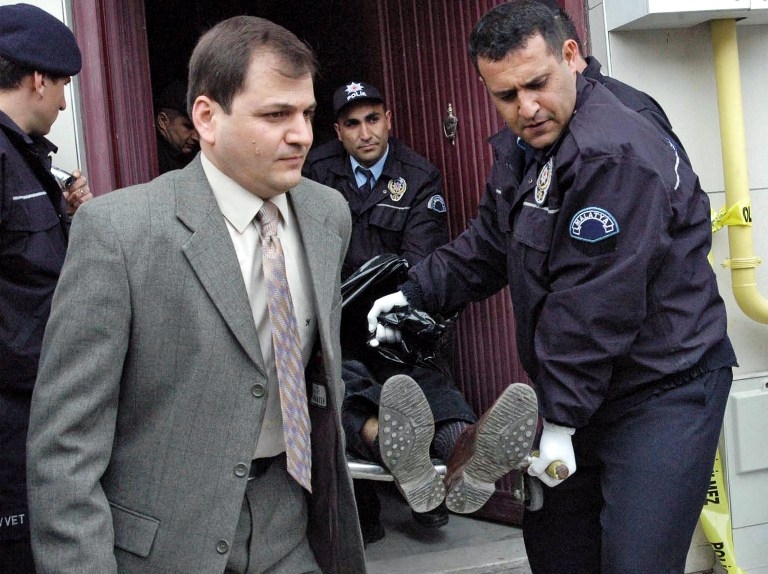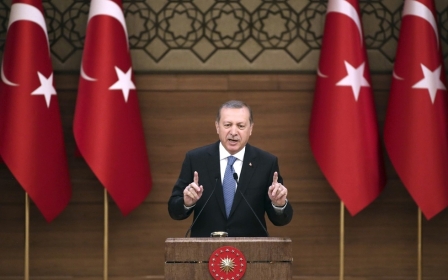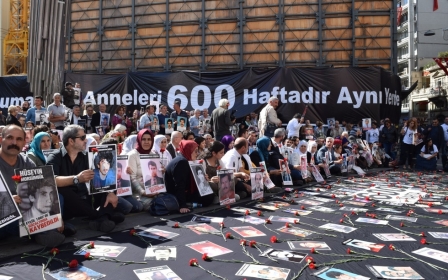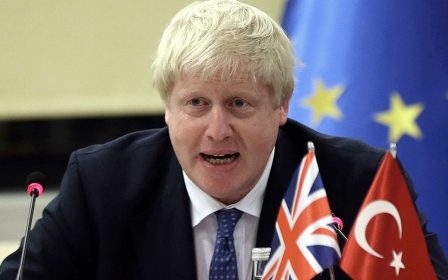Five jailed for life in Turkey over 2007 missionary murders

ISTANBUL, Turkey – A Turkish court on Wednesday handed down life terms to the murderers of three Christian missionaries who were killed nine years ago in the southern city of Malatya.
The court, in its 115th hearing since the trial started in 2008, handed down triple life sentences to the five perpetrators of what widely came to be known as the Zirve publishing house murders.
On 18 April 2007, German national Tilman Eckhart Geske and two Turkish converts to Christianity, Necati Aydin and Ugur Yuksel, had their throats slit while working at the Zirve Bible publishing house in the south-eastern city of Malatya.
Eleven people were apprehended after the attack and on Wednesday the court in Malatya sentenced five of them: Emre Gunaydin, Cuma Ozdemir, Hamit Ceker, Salih Gurler and Abuzer Yildirim.
Four of them had been apprehended at the crime scene nine years ago and Gunaydin was caught after injuring himself as he tried to flee the scene after jumping from a third floor window.
Mehmet Ulger, a retired gendarmerie colonel who was also indirectly implicated in the murders and was free on bail, was also present in court.
None of those implicated in the murders has been in prison since 2014, with three of those who were at the murder scene under house arrest.
The Zirve publishing house case was often in the limelight both domestically and internationally.
Internationally, the German government closely watched the case since it involved a German national.
Domestically, the case has often been used to implicate various sections of Turkish society feuding with each other.
Ergenekon link
In November 2008, the court hearing the Zirve case ruled that it was part of the wider Ergenekon plot and the cases should be merged.
Ergenkon was supposedly a clandestine secularist and ultra-nationalist organisation that wanted to topple the legitimate government by various means including the incitement of hatred and enmity among the country’s minorities.
The murder of Hrant Dink, a prominent Turkish journalist of Armenian descent in 2007 and the murder of Italian priest Andrea Santoro in Trabzon in 2006 were also linked to Ergenekon.
It later emerged that the Ergenekon purge was carried out by Fethullah Gulen’s followers in the police and judiciary.
In April, the country’s highest court of appeals dismissed all lower court rulings in the Ergenekon case saying prosecutors had failed to prove that Ergenekon even existed.
Gulen, a US-based Turkish preacher, and his followers are now accused by Turkish authorities of being behind the failed coup attempt of 15 July.
The government says that it was deceived by the Gulen movement and many controversial and drawn-out legal cases are being pinned on Gulen supporters within the system.
New MEE newsletter: Jerusalem Dispatch
Sign up to get the latest insights and analysis on Israel-Palestine, alongside Turkey Unpacked and other MEE newsletters
Middle East Eye delivers independent and unrivalled coverage and analysis of the Middle East, North Africa and beyond. To learn more about republishing this content and the associated fees, please fill out this form. More about MEE can be found here.




